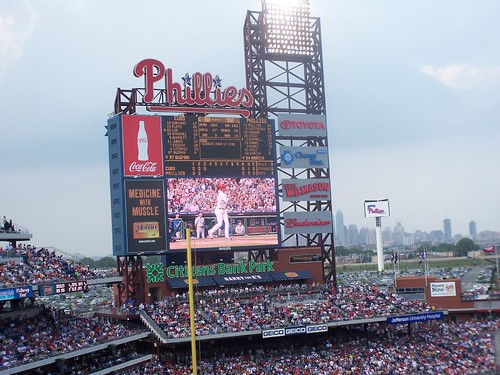Can Cherelle L. Parker deliver justice for Philly kids?
Philly #Philly

Cherelle L. Parker should not be the mayor of Philadelphia. That’s not an opinion — that is the truth, as Parker herself told it.
“By every statistic imaginable,” the new mayor said in her prepared inaugural remarks, “I am not supposed to be here.”
It was a line lost in the jubilant celebrations of her historic win.
But that truth matters. And it matters because it should force us to ask the question: If Parker shouldn’t have made it to the highest elected office in Philadelphia — where should she be?
“I was born to a single, teenage mother without a father present in my life,” Parker told the inaugural crowd. She was raised by her grandparents. The family survived using food stamps and public assistance. Parker was educated in the Philadelphia public school system.
There are thousands of children with that same story living in Philadelphia today. Too many won’t end up like Parker. Instead, they’ll be part of the statistics for Black children in Philadelphia’s failing schools that leave them more likely to be living in poverty, in jail, or dead than becoming mayor.
Here’s one of the most telling statistics: The “2022 Reading Trial Urban District Snapshot Report” showed that 92% of Black kids in Philadelphia are not proficient at reading in fourth grade. Stop and think what this means: Almost every Black child in a city-run school is not being taught to read.
Fourth grade is the make-or-break year for children in the United States because it’s when schools transition the kids from learning to read to reading to learn.
This is known as “the Matthew effect.” Statistics show that children who aren’t proficient in reading by fourth grade are four times more likely to drop out in high school. This leads to catastrophic results for these children throughout their lives. Kids who drop out of school are more likely to be arrested, fired, to abuse drugs, and to die by suicide.
Education has become so foundational to a child’s health and well-being, not just in childhood but throughout their lives, that the Centers for Disease Control and Prevention and the American Public Health Association have advocated for people to recognize that “health disparities are predicted by educational disparities.” Good health, these organizations say, is predicted by good education.
The National Institutes of Health reports that, when compared to medical advances in drugs and devices, promoting education to reduce health disparities could save eight times more lives.
The correlation between poor education and increased crime is well-established, and according to a 2019 study by the University of Pennsylvania, the closure of more than two dozen failing schools in Philadelphia led to a significant reduction in crime.
Violence and crime shape the lives of students in the most beleaguered school districts, not only while they are in school but also during their commute. Students at Pennsylvania’s lowest-performing schools — the bottom 15% based on statewide testing — are twice as likely to experience violence than their peers in higher-performing schools.
These facts are nothing short of cataclysmic for thousands of our city’s low-income children of color.
Which brings us back to why Parker shouldn’t be here. The new mayor knows these statistics all too well, and she likely witnessed them both as a child and as a former teacher. As an astute politician, Parker knows she can do an awful lot to change that dynamic. The mayor has the power to appoint school board members.
Clearly, change is needed. The current board continues to deny applications for new charter schools, despite more than 18,000 students — about the seating capacity of the Wells Fargo Center during a Flyers game — languishing on a wait list.
Last year, the district issued damning findings from its own internal report that showed the School District is stifling competition, refusing to authorize new charters, and shuttering existing charter schools. It called for an overhaul of the charter authorization process.
Parker must make that happen, especially to support Black-led charter schools. They comprise only 19% of Philadelphia’s charter schools but represent 87% of charters targeted for closure between 2010 and 2020. To end this, Parker must immediately name charter advocates to the board.
And she shouldn’t stop there. Of Philadelphia’s 219 schools, 138 are “low-achieving,” according to the Pennsylvania Department of Education. Students at these schools would be eligible for Lifeline Scholarships/PASS, providing them with Educational Opportunity Accounts to find a better school.
The mayor of Philadelphia could be the partner Gov. Josh Shapiro needs. The two most powerful Democrats in Pennsylvania could finally deliver on the governor’s promise to get educational savings accounts done.
Standing in the way of all this is the Democratic machine funded by the Philadelphia Federation of Teachers, which endorsed Helen Gym in the primary. Parker proved she could win without them.
Whether Parker has the political courage to take on her party and the teachers’ unions to deliver justice for kids like herself remains to be seen.